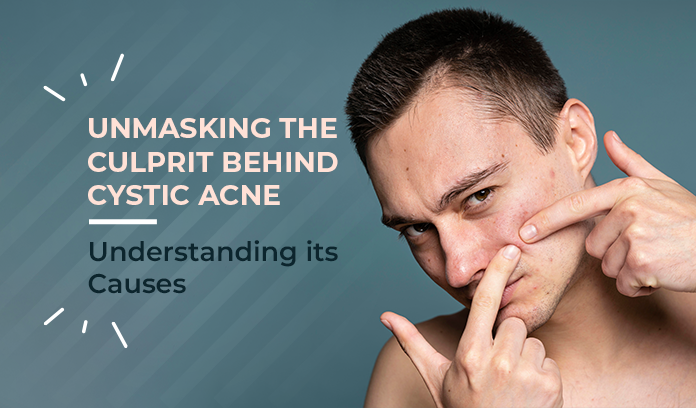Acne, as a common skin condition affecting many worldwide, has its own set of distressing symptoms and challenges. Cystic acne, one of the more painful kinds of acne, is characterized by large deep nodules that leave behind scars.
Understanding the underlying reasons behind cystic acne is crucial to arrive at effective treatment or prevention strategies.
How to Get Rid of Cystic Acne
Another primary factor contributing to cystic acne formation is hormonal imbalances, especially during the stages of puberty, pregnancy, and menopause.
Androgens are present in both males and females and can trigger the overstimulation of sebaceous glands. This surplus oil mixed with bacterial buildup and dead skin cells traps hair follicles, leading to inflammation and cyst formation.
Genetics
Family history also plays a profound role in skin conditions like cystic acne treatment.
Certain genetic predispositions or traits can make your skin even more susceptible to hormonal fluctuations and increased oil production.
If your parents, sibling, or close relatives have had their share of acne problems, it can make you more likely to develop cystic acne.
Dietary Choices
While there’s no substantial evidence linking specific dietary patterns to cystic acne formation, certain foods may end up exacerbating your acne.
A diet high in sugars, refined carbohydrates, and dairy intake may lead to insulin spikes, triggering hormonal fluctuations that lead to cystic acne.
Stress and Lifestyle factors
Chronic stress and unhealthy lifestyle choices can also impact your overall skin health.
Poor lifestyle habits such as inadequate sleep, excessive drinking, and smoking can influence hormone levels and worsen your cystic acne.
Stress triggers the release of cortisol, which can impact hormone production, leading to inflammation and increased stimulation of the sebaceous glands.
Skincare products and makeup
Using comedogenic makeup or skincare products can intensify your cystic acne development.
For oily acne-prone skin, these products may further block the pores and build bacterial growth, leading to acne breakouts.
Conclusion
Understanding the root causes of cystic acne can help us in adopting effective treatment options and preventive measures.
Seeking professional advice, following a balanced diet, and using non-comedogenic skincare products can help improve acne-prone skin. All of these above factors can help us manage cystic acne conditions better.











